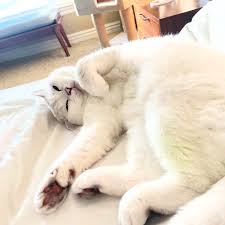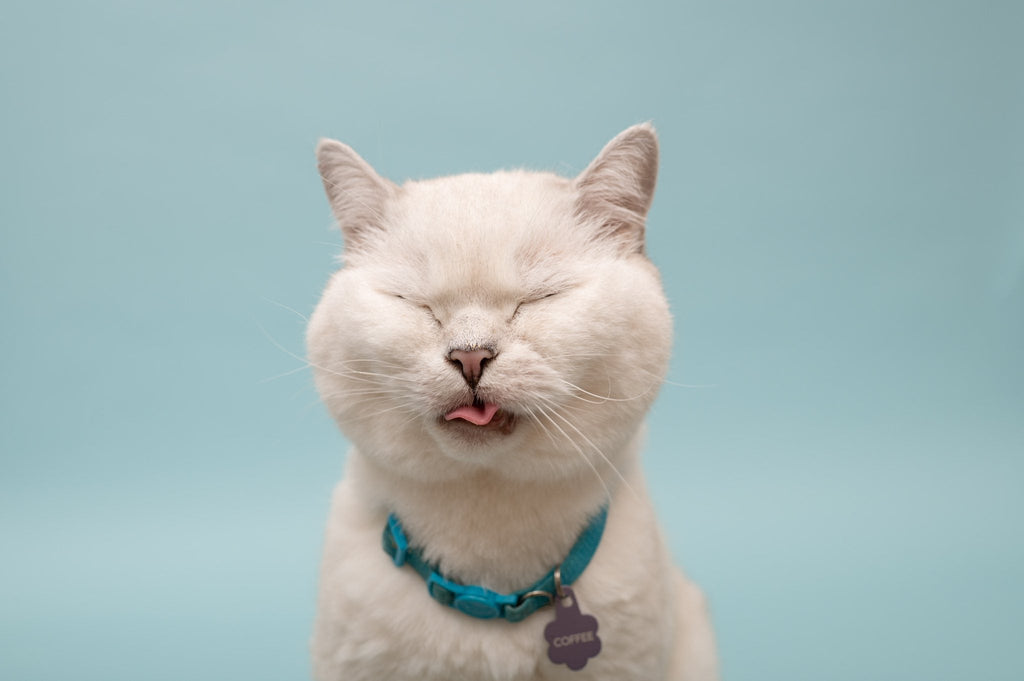What You Need to Know This National Hairball Awareness Day
It’s hairy, it’s slimy, and it’s a nuisance. It’s the hairball!
National Hairball Awareness Day is the last Friday in April, but its purpose isn’t to celebrate our hacking and wheezing until a glutinous clump of fluff catapults from our throats. Instead, I’d like to use this day to spread awareness about hairballs and how they can affect a cat’s overall health.
I’ve also learned a trick or two from my humans on how to prevent those ghastly balls, and I’m happy to share them with you!
What is a Hairball and How Do They Form?
A hairball, also known as a furball, is that nasty wad of fur that cats vomit up from time to time. If you’re a cat parent, you’ve likely encountered them at least once.
When we groom ourselves, the small hook-like structures on our tongue can collect excess fur and dander. Normally, these will pass right through our digestive tract with no issue, but there are times when the hair can gather in our esophagus before passing into the stomach, where it will sit undigested.
Then comes the unpleasant part.
When it’s time for the hairball to come out, we retch convulsively for a moment or two until a clump of hair laced in a clear, frothy, or yellow liquid is spit-up. It’s quite embarrassing for us normally elegant and composed creatures.
While the sight of your precious cat regurgitating like this can be concerning, it’s a normal byproduct of grooming and nothing to worry about if it happens every so often.
However, if you notice that hairballs have appeared more frequently, then it might be time to evaluate your cat’s health.
Are Hairballs Dangerous to Cats?
In some circumstances, the hairball passes into the small intestine and creates an intestinal blockage. This can cause us to have abdominal pain, vomiting, and decreased interest in food, even meals as delicious as my favorite tuna & salmon dinner.
In serious cases, the hairball can mineralize and damage the esophagus on its way out.
If your cat has repeated episodes of retching throughout the day but doesn’t cough anything up, you’ll want to see the cat doctor straight away. This is especially true if these episodes are accompanied by loss of appetite and lethargy.
The cat doctor will look for signs of obstruction through a physical examination, bloodwork, X-rays, or an ultrasound. If a hairball is found in your poor feline’s intestines, he or she may be prescribed a laxative to move it through the digestive tract.
Surgery may be required if the hairball is large enough, but this is a rare occurrence.
How to Prevent Hairballs
I have good news and bad news.
The bad news? The complete prevention of hairballs isn’t currently possible. The good news? A good maintenance program that keeps those hairballs at bay is!
Here are a few ways my humans help me and my siblings keep the hairballs to a minimum, and I’m sure they’ll work for your cats, too!
Regular Grooming
Although we’re usually good about keeping our own fur squeaky clean, it’s good to have our human’s help sometimes. Brush our fur at least a few times a week and dispose of any loose hairs that we may swallow later.
If your cats have long and voluptuous fur, you may have to groom them more often as they’re more prone to hairballs.
Skin Care
Skin discomfort can cause us to groom and lick our fur more frequently, which in turn increases the chance of hairballs. If you notice that your cat keeps grooming a particular area, check it to see if you find any signs of discomfort.
Skin conditions can also be brought about by pests like fleas and ticks, so keep your fur babies on preventatives.
Anxiety Relief
Did you know that overgrooming is a symptom of anxiety in cats? If you regularly groom your pet and there is no sign of skin irritation or parasites, it’s possible he or she is feeling anxious about something or suffers from generalized anxiety.
There are numerous ways you can help your cat feel more calm and relaxed, and your cat’s doctor will be able to recommend if any medicine or supplements are necessary. Some of the easiest things that you can try right now are creating a safe and quiet space for your cat to have some privacy and giving him or her positive alternatives to their anxious behaviors.
Celebrate More Cat Holidays Like National Hairball Awareness Day With Love, Nala
My humans and I love to keep cat parents updated on all things feline, including fun days you can celebrate with your cats and tips to keep them happy and healthy.
Check our Love, Nala blog for our favorite cat health advice and products, updates on our delicious grain-free wet and dry cat food, and more.
We’re so excited to have you in our community of loving cat parents.
Love, Nala




















